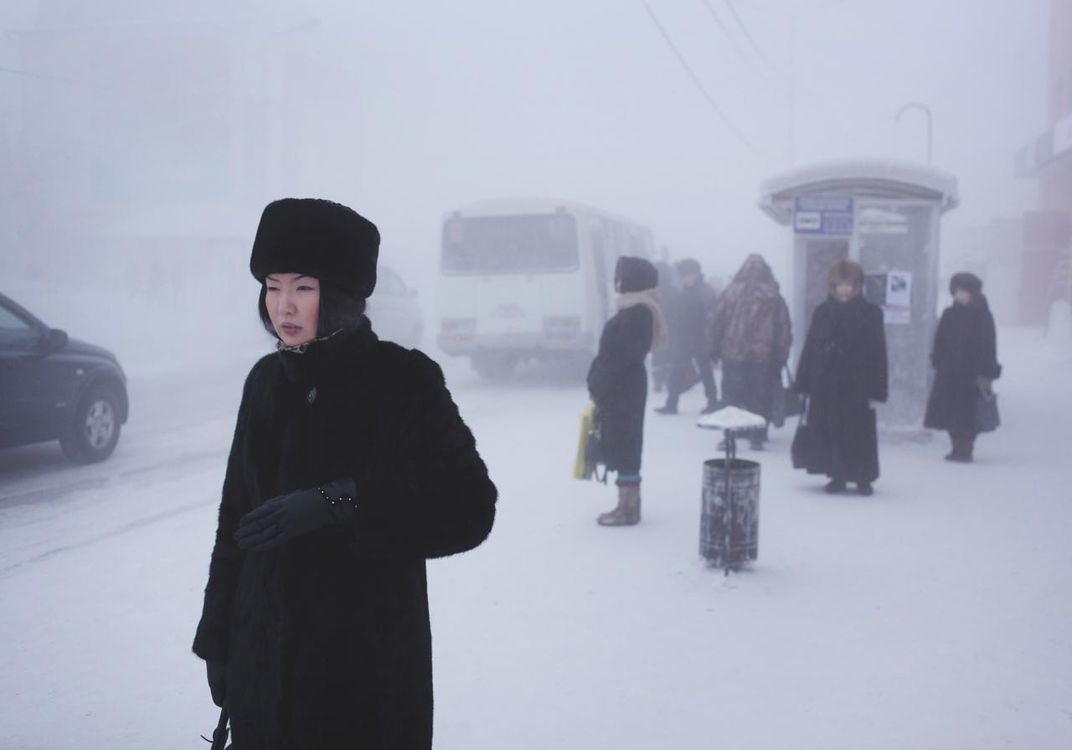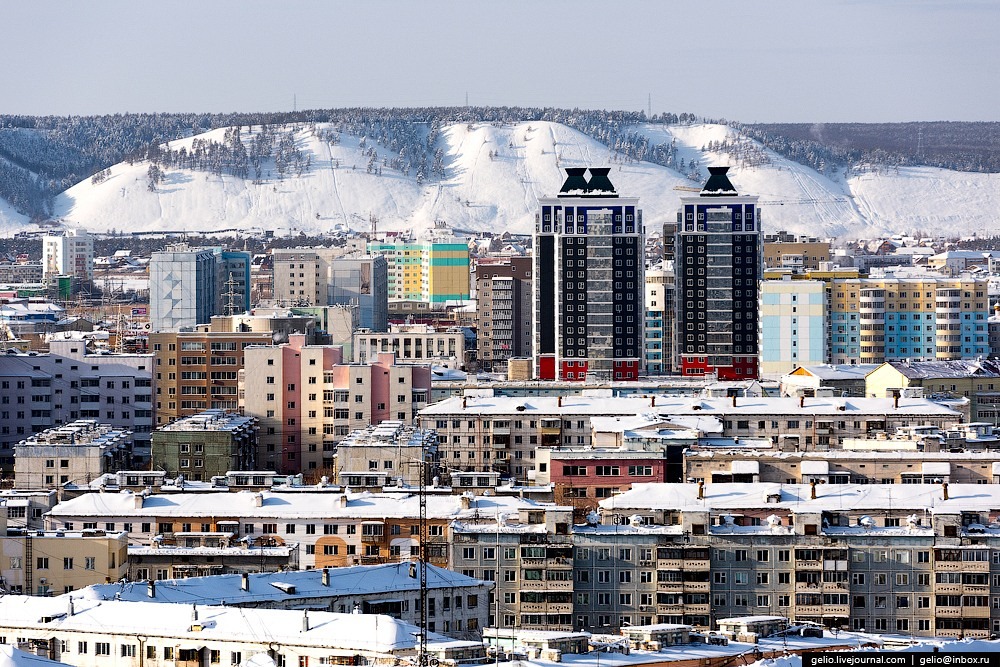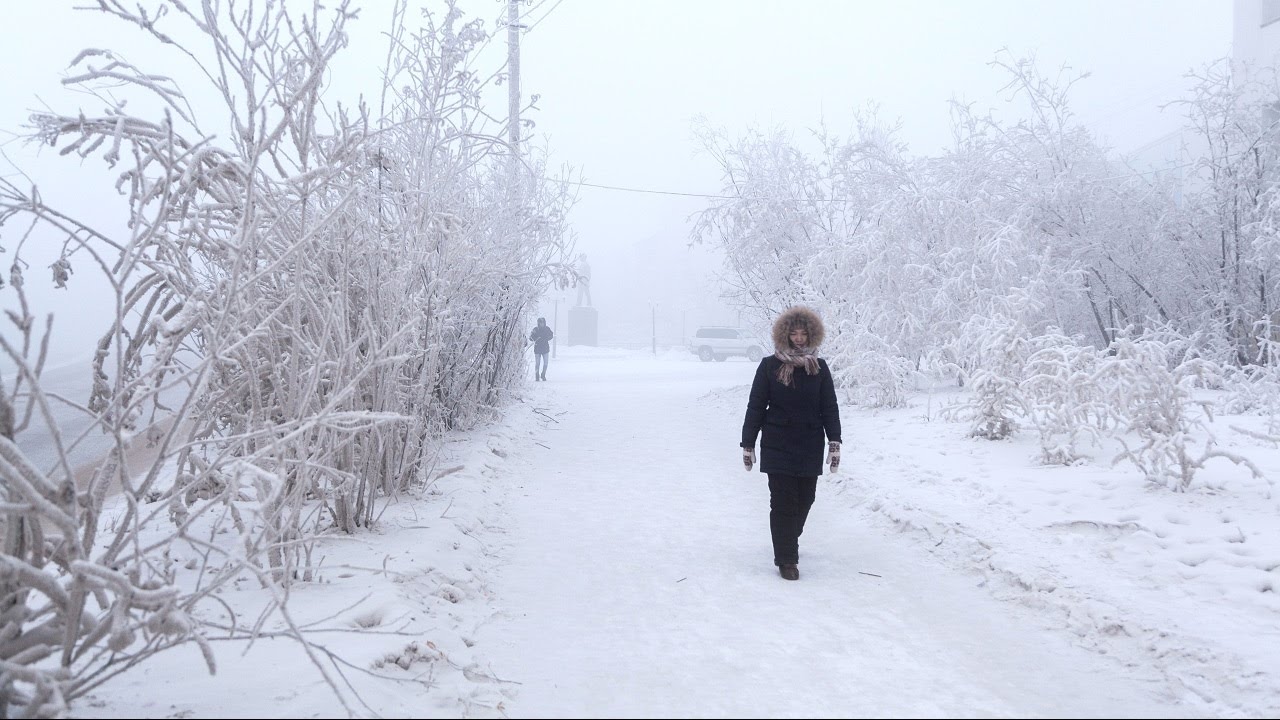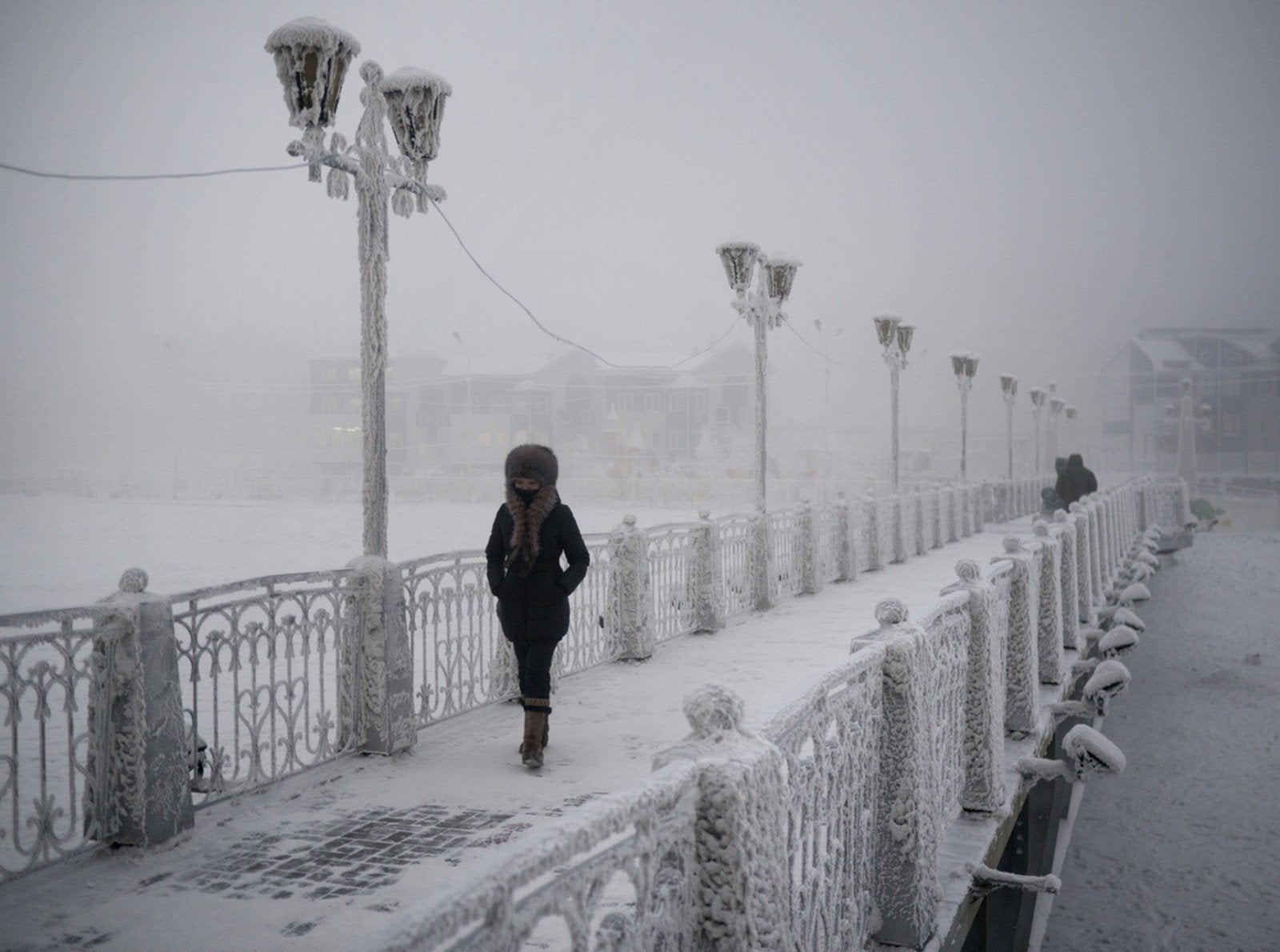Yakutsk is the capital city of the Sakha Republic, Russia, located about 450 kilometers (280 mi) south of the Arctic Circle.
Yakutsk, with an average temperature of −8.8 °C (16.2 °F), is the second coldest large city in the world after Norilsk, although Yakutsk experiences colder temperatures in the winter. Yakutsk is also the largest city located in continuous permafrost and one of the largest that cannot be reached by road.

With an extremely continental subarctic climate, Yakutsk has the coldest winter temperatures for any major city on Earth. Average monthly temperatures in Yakutsk range from +19.5 °C (67.1 °F) in July to −38.6 °C (−37.5 °F) in January. Yakutsk is the largest city built on continuous permafrost, and many houses there are built on concrete piles.

The lowest temperatures ever recorded on the planet outside Antarctica occurred in the basin of the Yana River to the northeast of Yakutsk, making it the coldest major city in the world.

Although winters are extremely cold and long – Yakutsk has never recorded a temperature above freezing between 10 November and 14 March inclusive – summers are warm (though rather short), with daily maximum temperatures occasionally exceeding +30 °C (86 °F), making the seasonal temperature differences for the region the greatest in the world at 102 °C (184 °F).

The lowest temperature recorded in Yakutsk was −64.4 °C (−83.9 °F) on 5 February 1891 and the highest temperatures +38.4 °C (101.1 °F) on 17 July 2011 and +38.3 °C (100.9 °F) on 15 July 1942.
The hottest month in records going back to 1834 has been July 1894, with a mean of +23.2 °C (73.8 °F), and the coldest, January 1900, which averaged −51.4 °C (−60.5 °F).
According to en.wikipedia











